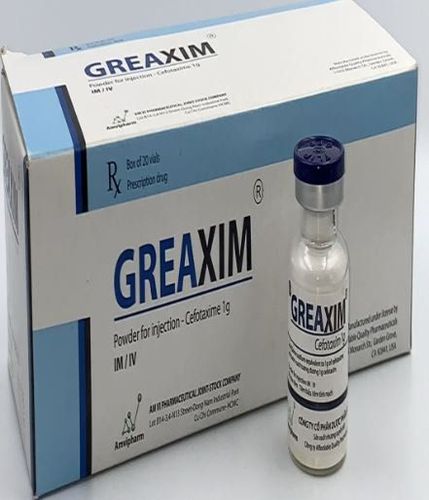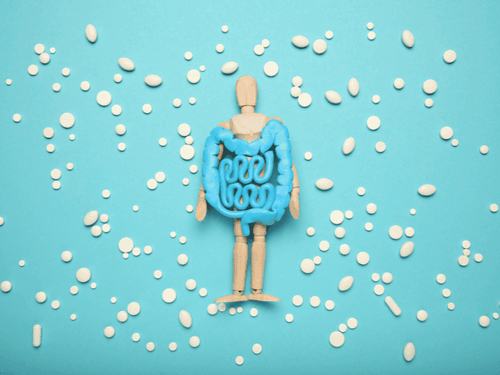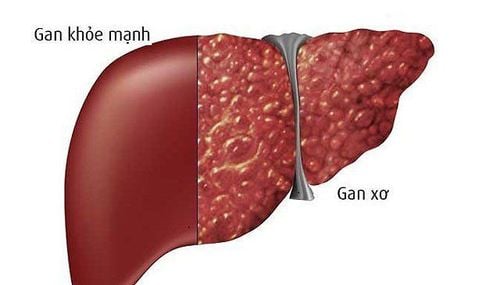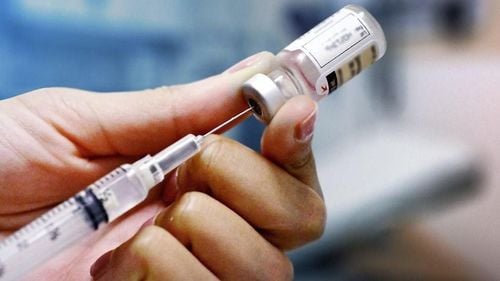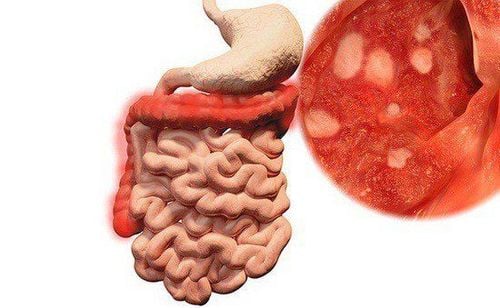This is an automatically translated article.
Posted by Master, Doctor Mai Vien Phuong - Department of Examination & Internal Medicine - Vinmec Central Park International General Hospital
Abbreviations:
Inflammatory bowel disease (IBD).
Ulcerative colitis (UC)
Crohn's disease (CD)
Fecal transplantation technique (FMT)
Many microorganisms play a role in gut health; they include bacteria, fungi, and viruses that exist in dynamic equilibrium to maintain mucosal homeostasis. Disturbances in the gut microbiota disrupt mucosal homeostasis and are strongly associated with human IBD and murine colitis. Therefore, preventing or correcting microbiome imbalance can be considered as a new prevention or treatment strategy for IBD.
In this review, we explore therapies that target the gut microbiome, such as fecal cultures, pro/prebiotics and herbal medicinal products, which represent options Choose effective treatment to control and slow the progression of inflammatory bowel disease (IBD).
1. The role of the microbiome in inflammatory bowel disease
Gut microbiota demonstrates association between environmental factors and immune response. Recent studies have found that gut microbiota deficiency in childhood affects the maturation and tolerance of the gut immune system, thereby increasing the risk of IBD in adulthood. In addition, defects in certain pattern recognition receptor genes, such as number-like receptor genes and nodular receptor genes, lead to innate immunodeficiencies, which may ultimately reduce host tolerance to gut microbiota. Therefore, a healthy gut microbiome is important for gut health.
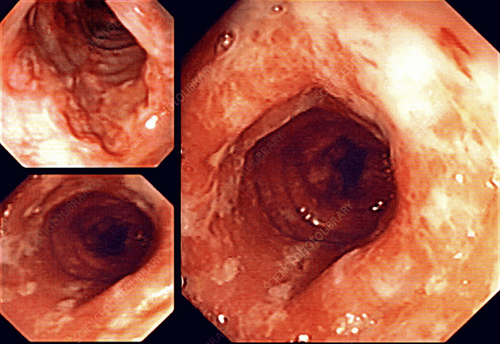
2. Intestinal microbiota strains
It has been confirmed that the gut is rich in microorganisms, including gut bacteria (99.1% of the gut microbiota), archaea (the majority remaining), as well as only 0.1% fungi and viruses. The total number of microorganisms present is more than 10 times the total number of human cells. The gut microbiota was dominated by phyla bacteria Firmicutes (49%-76%) and Bacteroidetes (16%-23%), while others had less bacterial phyla. The main fungal microbiota in the gut are Ascomycota and Basidiomycota phyla. The gut virome consists of all nucleic acids (DNA and/or RNA) mapped to the viral genome from stool samples or virus-like particles derived from stool samples.
For intestinal viromes, eukaryotic viruses, bacteria and pathogenic viruses present in the gastrointestinal tract. However, in recent years, there has been increasing evidence that the gut microbiota composition is significantly altered in IBD patients compared with healthy individuals. Thus, the regulation of the dysregulated gut microbiota may represent a novel therapeutic strategy for IBD.
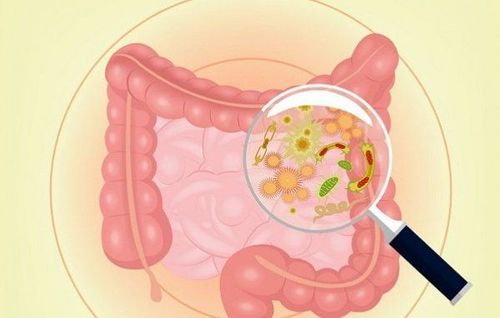
3. Treatment methods for inflammatory bowel disease
The classical treatments for IBD are diverse, including anti-inflammatory, immunosuppressive and biologic therapies, most of which are adopted and developed in clinical practice. IBD is a persistent, relapsing disease that requires long-term treatment, often leading to drug-induced side effects. Furthermore, many IBD patients fail to respond to clinically approved drugs, necessitating the development of new therapies or complementary and alternative drugs for IBD.
It is worth mentioning that, with the rapid progress in metagenomics, complementary and alternative therapies for IBD based on modulation of the gut microbiota have developed rapidly and preliminary achievements have been reported. . Pro/prebiotics, herbal medicinal products, and fecal microbial transplants (FMTs) are emerging treatment strategies for IBD that target the gut microbiota in a direct or indirect manner, thereby benefiting for gut health.
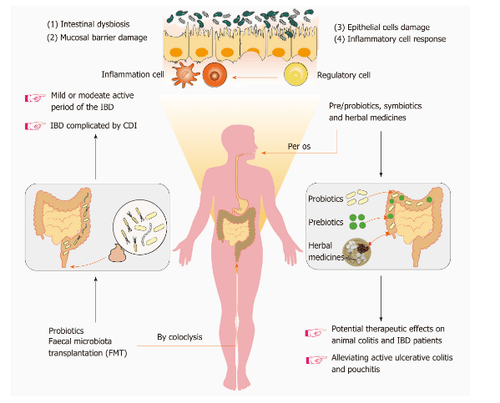
4. Targeted therapeutic strategies in the treatment of inflammatory bowel disease
a. Probiotics: The Biological Therapy of Live Bacteria Probiotics was first proposed in 1908 by Nobel laureate Eile Metchnikoff, who also identified the first probiotic agents, lactic acid bacteria, to have physiological effects. It inhibits the "autotoxic process of the intestine", slows down the aging process of the intestine and produces beneficial effects on human health. Since then, the concept of gut probiotics has been constantly evolving and new strains of beneficial bacteria are still being identified. The latest scientific definition of probiotics, i.e. . “Living microorganisms, when used in adequate amounts, confer a health benefit to the host” was raised in 2014.b. Fecal bacteria transplantation (FMT) is the transfer of fecal microorganisms from healthy donors to individuals with certain diseases, through technical methods such as douching, nasogastric or nasojejunal catheter, and oral capsule. FMT was first used to treat pseudomembranous enterocolitis (PMC) in 1958, by Eiseman et al.
Subsequent studies have suggested that PMC is caused by infection with the anaerobic bacteria C. difficile , which can cause intestinal dysbiosis. FMT has since been gradually expanded from the preliminary stages of development and testing to be used as an approved treatment for C. difficile infection (CDI) in the clinic, with a high success rate. almost 92%, thus representing an effective treatment compared to broad-spectrum antibiotics.
Thereafter, FMT was used to treat IBD complicated by CDI, and was eventually extended to treat patients with IBD only As a treatment strategy for IBD, FMT has been proposed for more than a decade. 25 years; however, it has only attracted research interest in the context of IBD in recent years. Several clinical studies have demonstrated promising therapeutic results for patients in the mildly or moderately active phase of the disease.
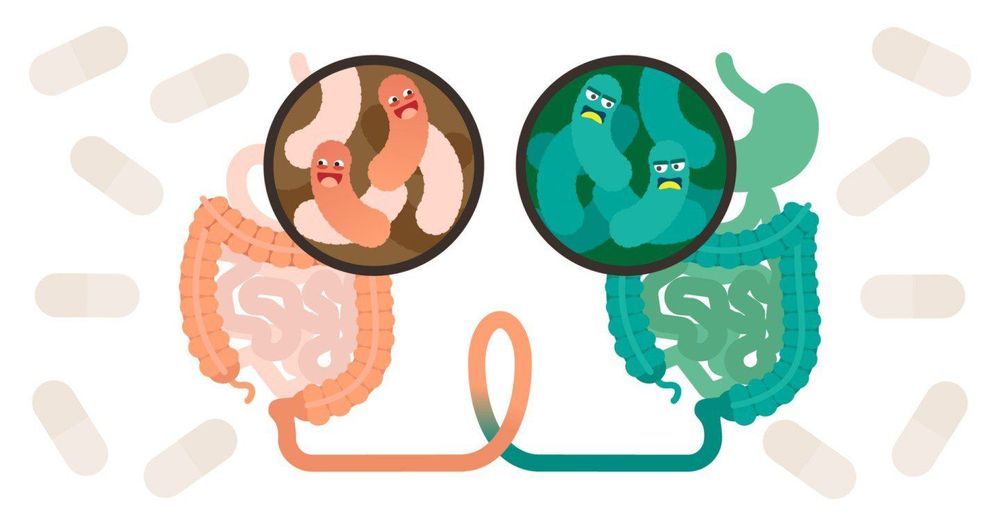
To date, various potent compounds have been found, some of which have been shown to reduce intestinal inflammation, at least in part by modulating the gut microbiota. Herbs containing polysaccharides include several Chinese medicines such as American ginseng and wild wolfberry, both of which have been shown to modulate intestinal dysbiosis and minimize intestinal inflammation in rats. Polyphenols in herbal medicines include anthocyanins, catechinic acids, ellagic acids and gallic acids, which can be converted to biologically active metabolites by intestinal microorganisms. Therefore, the modification of the microbial community structure is beneficial to the gut.
Conclusion
The bacterial-based therapies for IBD discussed in this review can be separated into two categories, namely: Those that directly target the microbiome (probiotics and FMT) and therapies with indirect regulatory mechanisms (prebiotics and herbal medicines). IBD is a complex disease involving immune, microbial, and environmental factors. Current treatments have limitations and offer low efficacy with the rapidly increasing incidence of IBD.
Currently, Vinmec International General Hospital is a prestigious address trusted by many patients in performing diagnostic techniques for digestive diseases, inflammatory bowel disease, short bowel syndrome, diseases causing chronic diarrhea , Crohn's disease, ectopic gastric mucosa in the esophagus...
Vinmec Hospital with modern facilities and equipment and a team of experienced experts, always dedicated to medical examination and treatment, Customers can rest assured with gastroscopy and esophagoscopy service at Vinmec International General Hospital.
Please dial HOTLINE for more information or register for an appointment HERE. Download MyVinmec app to make appointments faster and to manage your bookings easily.
ReferencesActis GC, Pellicano R, Fagoonee S, Ribaldone DG. History of Inflammatory Bowel Diseases. J Clin Med . 2019;8:1970. [PubMed] [DOI] Zhang YZ, Li YY. Inflammatory bowel disease: pathogenesis. World J Gastroenterol . 2014;20:91-99. [PubMed] [DOI] Plichta DR, Graham DB, Subramanian S, Xavier RJ. Therapeutic Opportunities in Inflammatory Bowel Disease: Mechanistic Dissection of Host-Microbiome Relationships. Cell . 2019;178:1041-1056. [PubMed] [DOI] Schirmer M, Garner A, Vlamakis H, Xavier RJ. Microbial genes and pathways in inflammatory bowel disease. Nat Rev Microbiol . 2019;17:497-511. [PubMed] [DOI] Yue B, Luo X, Yu Z, Mani S, Wang Z, Dou W. Inflammatory Bowel Disease: A Potential Result from the Collusion between Gut Microbiota and Mucosal Immune System. Microorganisms . 2019;7:440. [PubMed] [DOI] Bei Yue, Zhi-Lun Yu, Regulation of the intestinal microbiota: An emerging therapeutic strategy for inflammatory bowel disease, World J Gastroenterol. Aug 14, 2020; 26(30): 4378-4393, [PubMed] [DOI]





